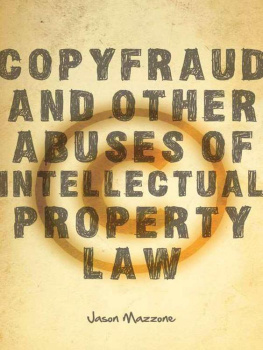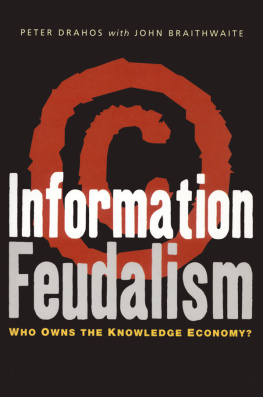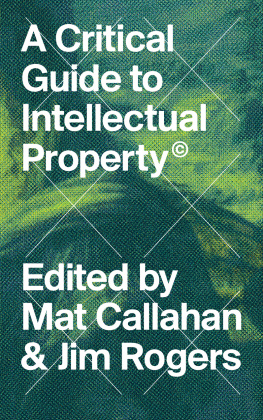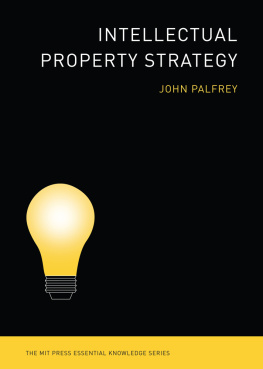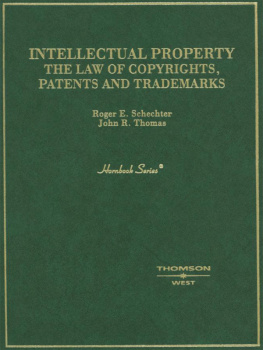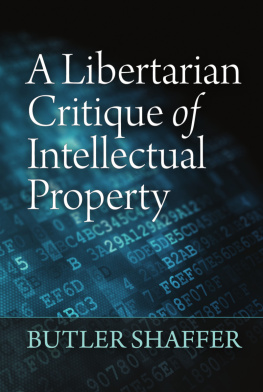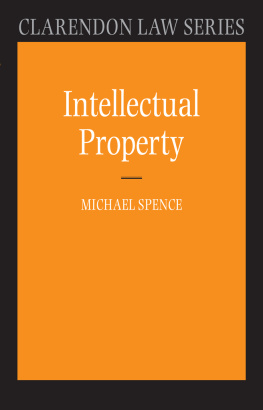2011 by the Board of Trustees of the Leland Stanford Junior University. All rights reserved.
Except as permitted by the U.S. Copyright Act of 1976, no part of this book may be reproduced or transmitted in any form or by any means, electronic or mechanical, including photocopying and recording, or in any information storage or retrieval system without the prior written permission of Stanford University Press.
Printed in the United States of America on acid-free, archival-quality paper
Library of Congress Cataloging-in-Publication Data
Mazzone, Jason, author.
Copyfraud and other abuses of intellectual property law / Jason Mazzone.
pages cm.
Includes bibliographical references and index.
ISBN 978-0-8047-6006-5 (cloth : alk. paper)
1. CopyrightUnited States. 2. Fair use (Copyright)United States. 3. Intellectual propertyUnited States. I. Title.
KF 2994. M 399 2011
346.730482dc22
2011008078
Typeset at Stanford University Press in 10.5/15 Adobe Garamond
For updates and further information, visit the authors website www.copyfraud.com
E-book ISBN: 978-0-8047-7915-9
COPYFRAUD
and OTHER ABUSES
of INTELLECTUAL
PROPERTY LAW
Jason Mazzone

COPYFRAUD
and OTHER ABUSES
of INTELLECTUAL
PROPERTY LAW
CONTENTS
PREFACE
C ALIFORNIA HAS 3,427 miles of shoreline.over beaches occur in other states as well. In most states, the wet sand area of a beach is held by law in public trust, meaning it exists for the use and benefit of the population as a whole, even when the adjacent property is privately owned. Yet property owners routinely attempt to make their rights go farther than they actually do by interfering with peoples ability to access beaches. On the New Jersey shore, homeowners have obstructed public entry points near their properties by erecting fences, and private beach clubs have set up entrance gates that admit only paying members onto public lands. On the island of Oahu, in Hawaii, gated subdivisions have turned public beaches into private sands. And in certain New York municipalities, local voters have passed ordinances limiting the use of the beach to town residents, notwithstanding the fact they have no legal right to do so. Increasingly, the beachthe publics playgroundis subject to private claims.
Like the owners of beachfront property, owners of intellectual property regularly claim more than the law gives them. Intellectual property law gives private parties rights in the works they create while also protecting the publics interests in accessing and using information. To achieve this laudable balance between public and private interests, intellectual property rights are limited. The law imposes various requirements that a creative work must meet to merit protection in the first place, and it specifies the kind and scope of rights that may be asserted. For example, copyrights and patents exist for limited terms; when the term of protection expires, the work falls into the public domain, where anybody is free to copy and use it. Increasingly, however, creators and content providers do not adhere to the distinction that intellectual property law draws between what belongs to them and what belongs to the public. They attach illegitimate ownership notices to works that are in the public domain. They wall off public works behind technological barriers. Their lawyers issue threats against individuals who have not infringed any actual property rights. They overreach.
While there are many other books on intellectual property, this is the first to examine overreaching as a distinct problem and to show how to solve it. Intellectual property law in the United States does not work well, and it needs to be reformedbut not for the reasons given by most critics. The principal defect of intellectual property law is not, as many observers have maintained, that intellectual property rights are too easily obtained, too broad in scope, and too long in duration. Rather, the primary problem is the gap that exists between the rights that the law confers and the rights that are asserted in practice. Overly broad claims to intellectual property rights are a widespread phenomenon. Such claims interfere with legitimate uses and reproductions of a wide variety of works, impose enormous social and economic costs, and undermine creative endeavors. The solution is not to change the scope or content of intellectual property rights, but to create mechanisms to prevent people and organizations from asserting legal protections beyond those they legitimately possess.
This book does three things. First, it shows the astonishing extent to which overreaching occurs and the effects of overreaching on the balance between private rights and public interests. Although the book focuses largely on copyrights, because copyright law is, of all the different kinds of intellectual property law, the one that ordinary people confront most regularly, we will see many examples of overreaching in a variety of sectors and media, including the music, movie, and software industries, and by a variety of actors, including owners of trademarks in childrens toys and television characters and, most surprising, nonprofit entities such as academic presses, museums, and archives.
Second, the book explains why creators and content providers overreach. In some instances, overreaching is simply about making money. Creators and content providers who can claim they own more than they actually do sell licenses to people who believe their claims. In other cases, overreaching is designed to inhibit competition. Profit is not, however, the only motivation. Overreaching also occurs when creators and content providers seek to control who gets to use creative works and for what purposes. For example, sometimes overreaching is intended to stifle criticism, promote a political agenda, or otherwise interfere with free speech.
Third, the book shows how to remedy overreaching. It presents a series of proposals by which government, organizations, and private actors can stand up to creators and content providers when they seek to grab more than the law gives them. We will see ways in which intellectual property law needs to be changed to prevent overreaching as well as how existing laws can be deployed to combat it. In identifying these remedies, we will draw lessons from other countries that have taken firm steps to keep intellectual property rights within their proper bounds. We will learn also how ordinary people can prevent and respond to overreaching claims. The public can and should take back its metaphorical beach. This book shows how to do that.
The book uses a typology to classify different kinds of overreaching along with the factors inherent in our intellectual property system that contribute to its occurrence. The typology allows the reader to recognize and understand overreaching when it occurs, as well as to identify the best remedy for the particular problem at hand. The typology distinguishes between two principal kinds of overreaching. False claims to intellectual property involve an assertion of ownership (and the accompanying ownership rights) when there is no basis for the claim. Claiming copyright in a work after the copyright has expired is one kind of false claim. The second general kind of overreaching, overzealous assertions of intellectual property rights, involves owners of intellectual property asserting their rights in ways that, while not dishonest, are of dubious validity. For example, threatening a lawsuit for copyright or trademark infringement when there is little likelihood of such a lawsuit prevailing (and thus little likelihood the case will ever be brought) entails an overzealous assertion of rights.
Next page
